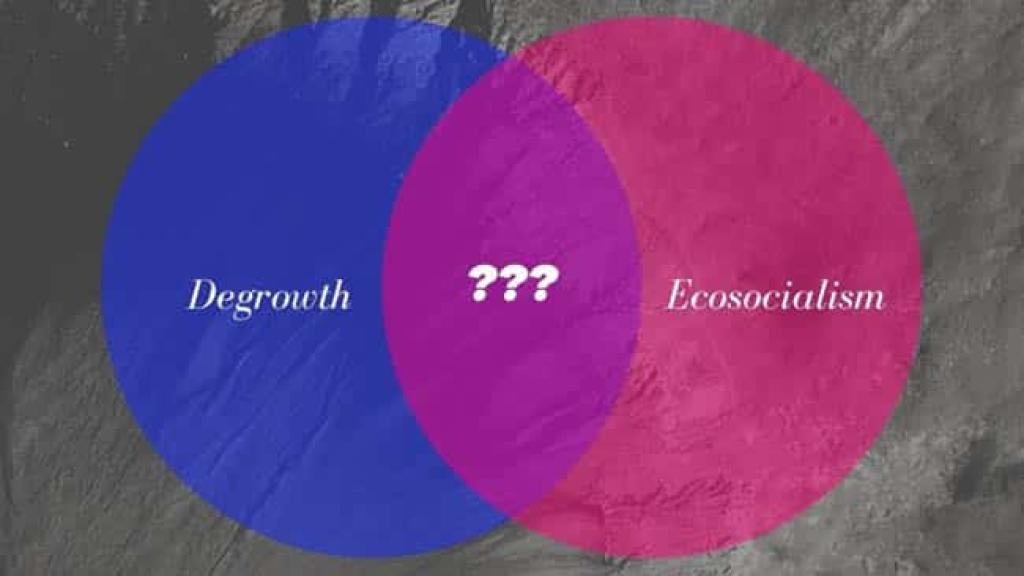The US dollar and the pound sterling: The role of currencies in the uneven process of decline of hegemonic imperialist powers
Michael Pröbsting
27 June, 2024

We have repeatedly dealt with the historic decline of U.S. imperialism — the hegemonic power among capitalist states since 1945 — and the rise of new rivals, mainly China and Russia. While the US is still a leading power it is no longer an absolute hegemon that dominates the world economy and politics.1
We have also pointed to the uneven character of this process of decline. On one hand, the US is no longer first, or is closely rivalled by China, in global output, manufacturing, trade, top corporations or the number of billionaires. (See tables in Appendix below.) On the other hand, there are fields where Washington still has a strong lead. This is, for example, true in the military field where the US possesses the largest number of foreign military bases as well as the strongest navy. However, when it comes to nuclear missiles, Russia is similarly strong. Furthermore, China is rapidly expanding its armed forces (including nuclear weapons) and is already second in military expenditures behind the US.2
Challenges to Western-dominated financial institutions
Furthermore, Washington’s rivals are starting to challenge long-time US hegemony in these spheres. In response to the accelerating US policy of imposing sanctions against rivals, other powers have started to build independent systems for payments settlement. Russia created the ruble-based SPFS, China its CIPS (where domestic and international payments are done in Chinese RMB), and India has built its UPI. In addition, European powers have created INSTEX to facilitate trade between Europe and Iran. Russia and China have already started the process of linking their respective international payment systems.
One can therefore only agree with the following remark of an economist: “There is still a long way to go before there is a real threat to the dominance of the dollar, but the trend toward the fragmentation of the global financial system cannot be reversed now.”3
In addition, there are serious efforts within the China/Russia-led BRICS+ alliance to establish a new international currency, called the Unit, as an alternative to the US dollar. The Unit would be anchored in gold (40%) and BRICS+ currencies (60%). It is said that the concept for this new currency has already received backing by the BRICS+ Business Council and is on the agenda at the ministerial meetings in Russia in the coming months.4
In fact, the past two years have shown that the new imperialist powers, China and Russia, have been able to challenge Western hegemony even in the financial sphere.5 Despite unprecedented sanctions by the NATO states, Russia’s economy not only withstood this pressure but continued its vast trade relations with many non-Western countries.
The Economist, mouthpiece of the Anglo-Saxon neoliberal bourgeoisie, noted in a recently published special survey: ”To a Muscovite banker, globalization is not dead. It simply no longer involves America and its allies. [This] case suggests an epochal shift in the global financial system. This report will argue that an array of forces – some long-standing, others newer – have combined to reduce the system’s dependence on Western capital, institutions and payment networks, and on America in particular.”6
In the past decade there has been an intense debate among Marxists about the decline of US imperialism. Our opponents rejected the thesis of the rise of Chinese and Russian imperialism and claimed that we exaggerate US decline.7 To substantiate their thesis they refer not only to Washington’s military strength but also ongoing US domination of global financial institutions.
In response, we have argued that the financial position of a state, important as it is, does not accurately reflect its role within the capitalist world economy and politics. This is because it only reflects indirectly and in a delayed manner changes in the process of capitalist value production. Hence, the position of the US currency is much stronger than its position in the productive sector of the world economy. This is because such changes do not take place simultaneously but with an interval. We stated that the current position of the US Dollar in the global currency market does not represent the actual economic strength of Washington but rather reflects its past strength. Hence, it is only a matter of time until the position of the currency adjusts to the position in the real economy.
In this article we would like to discuss a precedent for such a process — the decline of British imperialism and the role of its currency, the Pound Sterling before World War I.
The uneven decline of British imperialism in the first half of the 20th century
In the early period of the imperialist epoch, Britain was the hegemonic power. It possessed by far the largest colonial empire, the largest navy, was the largest capital exporter etc. However, Britain faced emerging imperialist rivals, most importantly Germany and the US. The result was an uneven process of decline, as can be seen from several figures that reflect the relation of forces between the imperialist powers shortly before World War I.
In capitalist value production, Britain had already lost its leading position in the years before 1914. Germany had a higher share of global industrial production and the US’ share was nearly double the British. When it came to world trade, Britain was still first but only slightly ahead of its rivals. (See Table 1)
Table 1. Great Powers’ Share in Global Industrial Production and Trade, 19138
Industrial Production World Trade
Britain 14% 15%
United States 36% 11%
Germany 16% 13%
France 6% 8%
However, in the spheres of military, capital export and currency, London was still by far the dominating power — similar to the position of US imperialism today. Britain’s overseas investments were as large as the combined share of the next three powers: Germany, the US and France. (See Table 2)
Table 2. Great Powers’ Share in Global Capital Export, 1913 9
Britain 41% (44%)
France 20%
Germany 13%
United States 8%
We see a similar picture when we compare the maritime strength of the Great Powers. In contrast to its economic decline, Britain was able to keep its dominating naval strength among the European powers. (See Table 3)
Table 3. Warship Tonnage of the European Powers, 1880 and 1914 10
Country 1880 1914 (1) 1914 (2)
Britain 650,000 2,714,000 2,205,000
Germany 88,000 1,305,000 1,019,000
France 271,000 900,000 731,000
Russia 200,000 679,000 328,000
The very slow decline of the Pound Sterling
Similar to the US today, Britain also retained the leading role of its currency, the Pound Sterling. According to economist Barry Eichengreen, “between 1860 and 1914 probably about 60 percent of world trade was invoiced and settled in sterling.”11
Likewise, the Sterling was by far the dominant currency in known official foreign exchange assets at the turn of the century. Although its share declined, it was still in a leading position before the beginning of World War I. (See Table 4)
Table 4. Shares of Currencies in Known Official Foreign Exchange Assets, 1899-1913 12
End of 1899 End of 1913
Sterling 64% 48%
Francs 16% 31%
Marks 15% 15%
Other currencies 6% 6%
It is remarkable that the Sterling remained a leading foreign currency after World War I and even for some time after World War II, as in 1950 over 55% of foreign exchange reserves were still held in Sterling. By then, Britain was clearly no longer the hegemonic power — neither economically, politically nor militarily.
Catherine R. Schenk, an economic historian, writes: “In the 1950s the sterling area (thirty-five countries and colonies pegged to sterling and holding primarily sterling reserves) accounted for half of world trade, and sterling accounted for more than half the world’s foreign exchange reserves. In the early post-war years this share had been even higher; the IMF estimated that official sterling reserves, excluding those held by colonies, were four times the value of official dollar reserves and that by 1947 sterling accounted for about 87 per cent of global foreign exchange reserves. It took ten years following the end of the war (and a 30 per cent devaluation of the pound) before the share of dollar reserves exceeded that of sterling.”13
Concluding remarks
Our brief historical comparison has shown that the law of uneven and combined development in history applies also to the process of decline of a hegemonic power.14 We saw this in the early period of the imperialist epoch when Britain was no longer the dominating power and challenged by emerging imperialist powers such as Germany and the US. Currently, there is a similar process underway as US imperialism — hegemon among capitalist countries since 1945 — experiences a process of decline while China and Russia are rising as new Great Powers.
However, such a process of decline takes place in an uneven and contradictory way. Britain was no longer the leading industrial producer or trading power, and, more fundamentally, it could no longer dominate world politics. However, it still possessed by far the largest navy, which allowed it to control global oceans and, hence, world trade. Likewise, it owned nearly half of the world’s foreign direct investments and the Pound Sterling was the dominating currency on the world market.
The evolution of the US’ decline has many similar features. China has already surpassed, or is closely behind, the US in terms of capitalist industrial production, trade, leading global corporations, billionaires, etc. At the same time, Washington still has the strongest armed forces and dominates global financial institutions. This is also reflected in the leading position of the US dollar in the global currency market. However, such a leading position does not reflect so much the current but rather the past strength of the declining hegemon.
In fact, the old Western-dominated global order of the capitalist world economy is close to collapse in the face of the new imperialist powers. The Economist recently warned in an editorial: ”For years the order that has governed the global economy since the second world war has been eroded. Today it is close to collapse. A worrying number of triggers could set off a descent into anarchy where might is right and war is once again the resort of great powers.”15
For all these reasons, we oppose the thesis advocated by some Marxists that the US is still the dominating hegemon and its rivals, such as China and Russia, are not imperialist powers. We are no longer in a world dominated by a single hegemon but rather one that is characterised by an accelerating rivalry between old and new imperialist powers. As developments in the second decade of the twentieth century have demonstrated, a strong military or dominating currency do not guarantee the hegemonic role of a declining Great Power.
In such a historic period, it is crucial for Marxists to recognize the imperialist nature of all Great Powers — the Western (U.S., Western Europe and Japan) as well as the Eastern (China and Russia) — and to intransigently oppose all of them!
Michael Pröbsting is a socialist activist and writer. He is the editor of the website http://www.thecommunists.net/ where a version of this article first appeared.
Appendix
Table A. Top Six Countries in Global Manufacturing, 2000 and 2022 16
Rank Country Share 2000 Share 2022
1. China 9.8% 30.7%
2. U.S. 23.7% 16.1%
3. Japan 10.2% 6.0%
4. Germany 6.4% 4.8%
5. South Korea 2.5% 3.1%
6. India 1.4% 3.1%
Table B. Leading Exporters in World Merchandise Trade excluding intra-EU Trade, 2023 17
Rank Country 2022
1. China 17.5%
2. EU 14.3%
3. U.S. 10.4%
4. Japan 3.7%
5. South Korea 3.3%
Table C. Top 10 Countries with the Ranking of Fortune Global 500 Companies (2023) 18
Rank Country Companies Share (in%)
1 United States 136 27.2%
2 China (without Taiwan) 135 27.0%
3 Japan 41 8.2%
4 Germany 30 6.0%
5 France 23 4.6%
6 South Korea 18 3.6%
7 United Kingdom 15 3.0%
8 Canada 14 2.8%
9 Switzerland 11 2.2%
10 Netherlands 10 2.0%
Table D. Top 5 Countries of the Forbes Billionaires 2023 List 19
Rank Country . Number of billionaires
1 United States 735
2 China (incl. Hong Kong) 561
3 India 169
4 Germany 126
5 Russia 105
Table E. Top 5 Countries of the Hurun Global Rich List 2022 20
Rank Country Number of billionaires
1 China (incl. Hong Kong) 923
2 U.S. 691
3 India 187
4 Germany 144
5 United Kingdom 1341
Our most detailed works on the Marxist theory of imperialism are two books Anti-Imperialism in the Age of Great Power Rivalry. The Factors behind the Accelerating Rivalry between the U.S., China, Russia, EU and Japan. A Critique of the Left’s Analysis and an Outline of the Marxist Perspective, RCIT Books, Vienna 2019, https://www.thecommunists.net/theory/anti-imperialism-in-the-age-of-great-power-rivalry/; The Great Robbery of the South. Continuity and Changes in the Super-Exploitation of the Semi-Colonial World by Monopoly Capital Consequences for the Marxist Theory of Imperialism, RCIT Books, 2013, https://www.thecommunists.net/theory/great-robbery-of-the-south/
2
Michael Pröbsting, "Inter-imperialist rivalry and the specter of de-dollarization: On the decline of the US Dollar since the start of the Ukraine War," LINKS, 12 May, 2023, https://links.org.au/inter-imperialist-rivalry-and-specter-de-dollarization-decline-us-dollar-start-ukraine-war
3
Alexandra Prokopenko: "How the Latest Sanctions Will Impact Russia—and the World", Carnegie Endowment for International Peace, June 20, 2024, https://carnegieendowment.org/russia-eurasia/politika/2024/06/finance-sanctions-russia-currency
4
Pepe Escobar: De-Dollarization Bombshell, 13 May 2024, https://www.unz.com/pescobar/de-dollarization-bombshell/
5
See e.g. Michael Pröbsting: "BRICS+: An Imperialist-Led Alliance", 30 August 2023, LINKShttps://links.org.au/brics-imperialist-led-alliance
6
The Economist: "Special Report: Deglobalisation of finance", 11 May 2024, p. 3
7
See on this Michael Pröbsting: “Imperialism, Great Power rivalry and revolutionary strategy in the twenty-first century”, 1 September, 2023, https://links.org.au/imperialism-great-power-rivalry-and-revolutionary-strategy-twenty-first-century; Michael Pröbsting: “‘Empire-ism’ vs a Marxist analysis of imperialism: Continuing the debate with Argentinian economist Claudio Katz on Great Power rivalry, Russian imperialism and the Ukraine War”, 3 March 2023, https://links.org.au/empire-ism-vs-marxist-analysis-imperialism-continuing-debate-argentinian-economist-claudio-katz; “Russia: An Imperialist Power or a ‘Non-Hegemonic Empire in Gestation’? A reply to the Argentinean economist Claudio Katz”, New Politics, 11 August 2022, at https://newpol.org/russia-an-imperialist-power-or-a-non-hegemonic-empire-in-gestation-a-reply-to-the-argentinean-economist-claudio-katz-an-essay-with-8-tables/
8
Jürgen Kuczynski: Studien zur Geschichte der Weltwirtschaft, Berlin 1952, p. 35 and p. 43.
9
Paul Bairoch and Richard Kozul-Wright: "Globalization Myths: Some Historical Reflections on Integration, Industrialization and Growth in the World Economy", UNCTAD Discussion Papers No. 113, 1996, p. 12. The late Eric Hobsbawn gives the figure of 44% for Britain’s share in foreign investment. (E. J. Hobsbawm: The Age of Empire, Vintage Books, New York 1989, p.51)
10
Figures for the columns 1880 and 1914 (1) are taken from Paul Kennedy: The Rise and Fall of the Great Powers: Economic Change and Military Conflict from 1500 to 2000, Unwin Hyman, London 1988, p. 203; figures for the column 1914 (2) are taken from Niall Ferguson: The Pity of War, Allen Lane, The Penguin Press, London 1998, p. 85.
11
Barry Eichengreen: Sterling’s Past, Dollar’s Future: Historical Perspectives on Reserve Currency Competition, National Bureau of Economic Research, Working Paper 11336, p. 4. see also Peter H. Lindert: Key Currencies and Gold 1900-1913,” Princeton Studies in International Finance No. 24, International Finance Section, Department of Economics, Princeton University, (1969); Violaine Faubert: Learning from the first globalisation (1870-1914), Trésor-Economics No. 93, October 2011
12
Ibid, p. 28
13
Catherine R. Schenk: The Decline of Sterling. Managing the Retreat of an International Currency, 1945–1992 Cambridge University Press, Cambridge 2010, p. 30
14
On the law of uneven and combined development in history see Michael Pröbsting: "Capitalism Today and the Law of Uneven Development. The Marxist Tradition and Its Application in the Present Historic Period", in Critique: Journal of Socialist Theory (Volume 44, Issue 4, 2016), pp. 381-418, https://www.tandfonline.com/doi/full/10.1080/03017605.2023.2199592
15
The Economist: "The new economic order", 11 May 2024, p. 7
16
Figures for the year 2000: APEC: Regional Trends Analysis, May 2021, p. 2; the figures for Germany and India in the first column are for the year 2005 (UNIDO: Industrial Development Report 2011, p. 194); figures for the year 2022: UNIDO: International Yearbook of Industrial Statistics Edition 2023, pp. 36-37
17
WTO: Global Trade Outlook and Statistics, April 2024, p. 40
18
Fortune Global 500, August 2023, https://fortune.com/ranking/global500/2023/ (the figures for the share is our calculation)
19
Forbes: Forbes Billionaires 2023, https://www.forbes.com/sites/chasewithorn/2023/04/04/forbes-37th-annual-worlds-billionaires-list-facts-and-figures-2023/?sh=23927e7477d7
20
Hurun Global Rich List 2021, 2.3.2021, https://www.hurun.net/en-US/Info/Detail?num=LWAS8B997XUP



